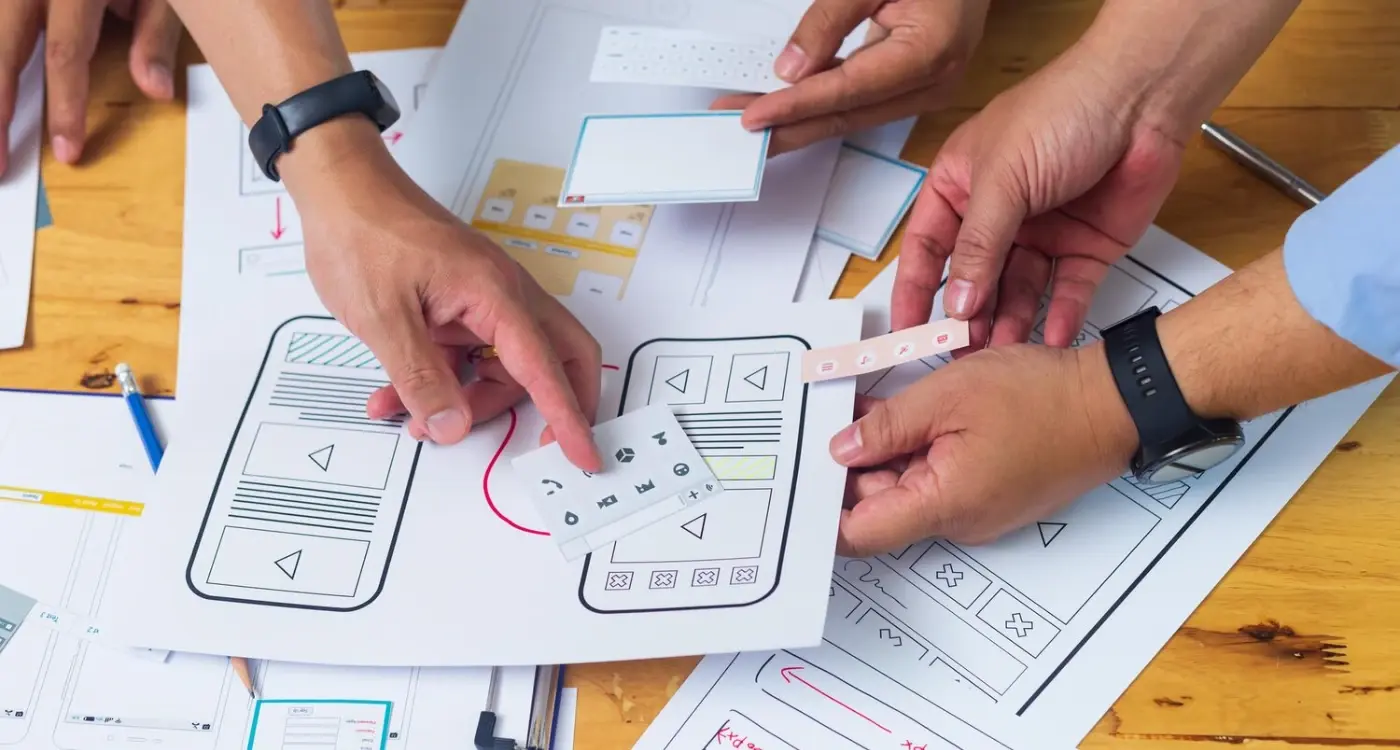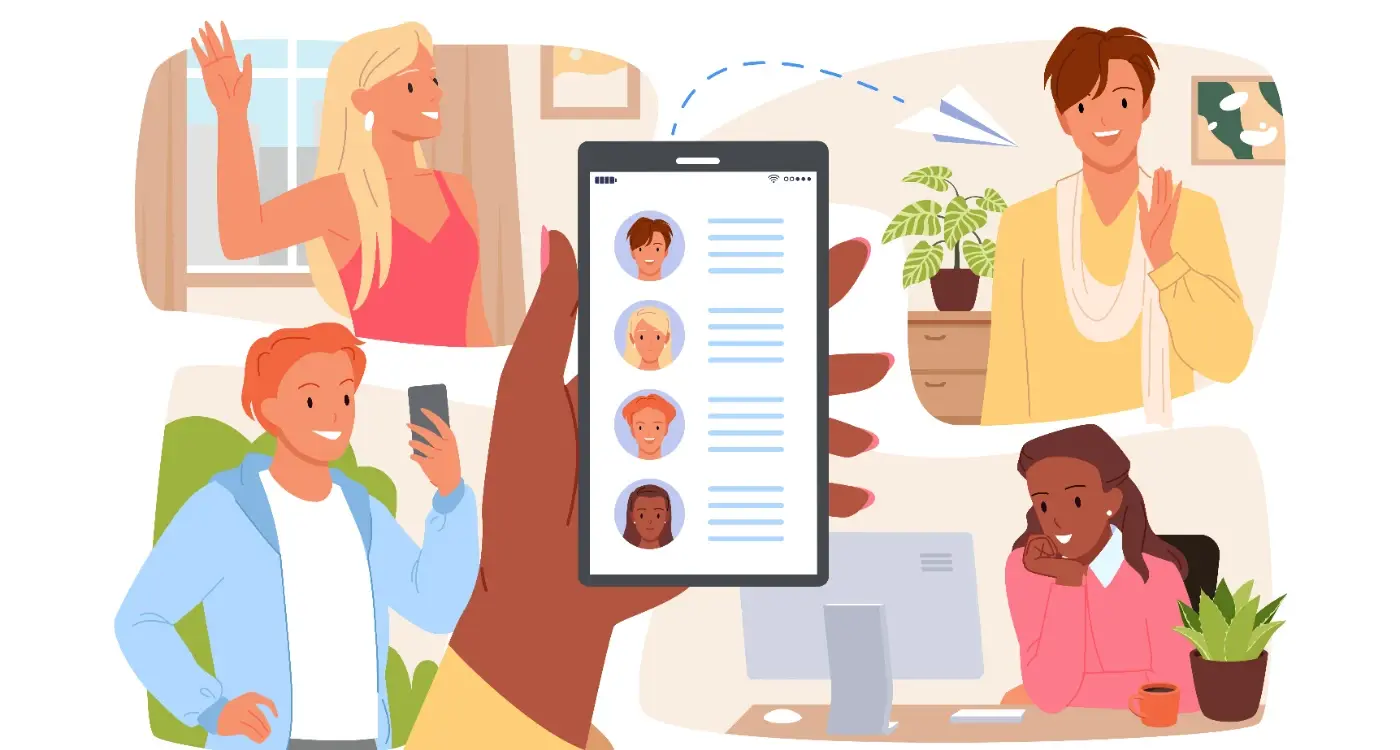Your Questions Answered
In-depth guides covering everything from costs and timelines to user acquisition and development best practices.
Featured Topics
Explore our biggest content hubs covering everything from development and design to security and business strategy. These comprehensive collections bring together our most valuable insights on the topics that matter most to app creators.

Planning & Strategy
305 guidesDevelop winning strategies and comprehensive plans to guide your app from concept to successful product.
View all guides →
Research & Validation
137 guidesValidate your app idea through market research, user testing, and competitive analysis.
View all guides →
Costs & Budgeting
222 guidesMaster app development costs, create realistic budgets, and make smart financial decisions for your mobile project.
View all guides →
Funding & Investment
40 guidesExplore funding options, pitch to investors, and secure the capital needed to build your app.
View all guides →
UX & UI Design
195 guidesCreate beautiful, intuitive interfaces and exceptional user experiences that delight your app users.
View all guides →
Development & Technology
362 guidesExplore the latest in app development technologies, frameworks, and best practices for building robust mobile applications.
View all guides →
Team & Resources
116 guidesBuild and manage effective development teams, allocate resources wisely, and create productive workflows.
View all guides →
Launch & Marketing
142 guidesDiscover effective launch tactics and marketing strategies to successfully introduce your app to the market.
View all guides →
Growth & Retention
137 guidesLearn strategies to grow your user base, improve engagement, and keep users coming back to your app.
View all guides →
User Psychology
147 guidesUnderstand user behaviour, motivations, and psychology to create more engaging and addictive app experiences.
View all guides →
Security & Legal
291 guidesUnderstand security requirements, legal compliance, and privacy regulations for building trustworthy mobile apps.
View all guides →
Risk Management
86 guidesIdentify, assess, and mitigate risks in your app development project to ensure smooth delivery and success.
View all guides →Browse by Stage
Every app journey has distinct phases, each with its own challenges and considerations. Whether you're still validating your idea, selecting a development team, preparing for launch, or scaling your user base, find the guides that match exactly where you are right now.
Industry-Specific Guides
Different industries have unique requirements, regulations, and user expectations. From healthcare compliance to fintech security, e-commerce conversion optimisation to automotive connectivity, our industry-focused guides address the specific challenges and opportunities in your sector.
Healthcare Apps
36 guidesFintech Apps
53 guidesE-commerce Apps
11 guidesEducation Apps
14 guidesTravel Apps
12 guidesAutomotive Apps
14 guidesLuxury Retail Apps
15 guidesFood & Beverage Apps
11 guidesEntertainment Apps
20 guidesSocial Apps
26 guidesReal Estate Apps
10 guidesLogistics Apps
14 guidesAll Topics A-Z
Sometimes you know exactly what you're looking for. Browse our complete library of topics alphabetically to find specific guidance on everything from accessibility and API management to user testing and version control. Over 40 topics, thousands of guides.
A
- Accessibility & Inclusive Design 41 guides
- AI-Powered Personalisation 37 guides
- API Security & Management 47 guides
- App Analytics & Performance Strategy 81 guides
- App Development Cost Breakdown 68 guides
- App Development Process & Roadmaps 69 guides
- App Feasibility Studies 25 guides
- App Insurance & Risk Management 19 guides
- App Launch & Promotion Strategies 45 guides
- App Maintenance & Ongoing Costs 36 guides
- App Onboarding Psychology 24 guides
- App Planning & Business Strategy 84 guides
- App Reviews & Ratings Management 19 guides
- App Security Certification 13 guides
- App Store Optimisation (ASO) 41 guides
- App Store Psychology 18 guides
- App Store Submission & Approval 107 guides
- App Trends & Future Technologies 14 guides
B-H
- Competitive App Analysis 37 guides
- Competitive Positioning 37 guides
- Data Protection & GDPR Compliance 39 guides
- Database Security Solutions 9 guides
- Design Psychology & Neuroscience 23 guides
- Design Trends & Best Practices 29 guides
- Developer Selection & Vetting 74 guides
- Development Platform Security 11 guides
- Development Tools & Technologies 92 guides
- Email Marketing for Mobile Apps 22 guides
- Enterprise App Security 34 guides
- Enterprise & Business App Development 17 guides
- Executive Buy-in & Stakeholder Management 18 guides
- Feature Planning & Prioritisation 36 guides
- Feature-Specific Development Costs 33 guides
- Funding & App Investment 35 guides
- Gamification & Behavioural Design 18 guides
- Hidden Costs & Budget Planning 21 guides
I-Q
- Industry Benchmarking 14 guides
- Industry-Specific App Costs 23 guides
- Industry-Specific App Development 29 guides
- Industry-Specific App Strategies 12 guides
- Industry-Specific Design 12 guides
- Industry-Specific Legal Compliance 30 guides
- Industry-Specific Security Standards 24 guides
- Intellectual Property Protection 40 guides
- IoT Device Integration & Security 19 guides
- Licensing & Permissions 12 guides
- Long-term App Growth Strategy 14 guides
- Market Research & Analysis 51 guides
- Native vs Cross-Platform Development 50 guides
- Payment Integration & Multi-Currency 18 guides
- Progressive Web Apps (PWAs) 17 guides
- Purchase Behaviour & Conversion Psychology 20 guides
- Push Notification Psychology 18 guides
R-Z
- Regulatory Approval Processes 15 guides
- ROI & Investment Protection 22 guides
- Social Media & App Viral Marketing 27 guides
- Solo & Independent App Development 13 guides
- Team Management & Training 20 guides
- Technology Research & Innovation 22 guides
- Terms of Service & Privacy Policies 21 guides
- User Acquisition & Growth Hacking 39 guides
- User Engagement & Retention Psychology 72 guides
- User Personas & Design Research 18 guides
- User Satisfaction & Feedback 41 guides
- User Testing & Research Methods 79 guides
- UX/UI Design Principles 84 guides
- Version Control & Code Management 22 guides
- Wearable App Design 26 guides
Latest Guides
The mobile app landscape evolves rapidly, with new technologies, platforms, and best practices emerging constantly. Stay current with our newest guides covering the latest trends, tools, and techniques that are shaping app development today.
-
 →Expert GuideHow Do I Get My Team to Support My App Vision?
→Expert GuideHow Do I Get My Team to Support My App Vision? -
 →Expert GuideHow Do I Fix Bugs When There's Nobody Else to Ask?
→Expert GuideHow Do I Fix Bugs When There's Nobody Else to Ask? -
 →Expert GuideHow Do I Design Apps for Elderly People?
→Expert GuideHow Do I Design Apps for Elderly People? -
 →Expert GuideHow Do I Design Apps for Hotels and Guests?
→Expert GuideHow Do I Design Apps for Hotels and Guests? -
 →Expert GuideHow Do I Get Employees to Use Our New Business App?
→Expert GuideHow Do I Get Employees to Use Our New Business App? -
 →Expert GuideHow Do I Connect My App to Our Company Database?
→Expert GuideHow Do I Connect My App to Our Company Database? -
 →Expert GuideHow Do I Choose Which Countries to Launch My App In?
→Expert GuideHow Do I Choose Which Countries to Launch My App In? -
 →Expert GuideHow Do I Design Apps for Pet Owners and Vets?
→Expert GuideHow Do I Design Apps for Pet Owners and Vets? -
 →Expert GuideHow Do Apps Use Light Detection Technology?
→Expert GuideHow Do Apps Use Light Detection Technology? -
 →Expert GuideHow Do I Build My App to Handle Ten Times More Users?
→Expert GuideHow Do I Build My App to Handle Ten Times More Users?



